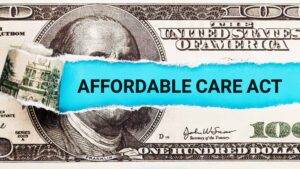
IRS GOES AFTER VIRTUAL CURRENCY IN A BIG WAY
Money can’t buy happiness, but Bitcoin can buy a Tesla and that may make you and the IRS happy!
IRS has been talking about the taxation of virtual currency since 2014. Virtual currency (Bitcoin to some of us) is property. If I use property that I paid $10 for to buy something that is valued at $25, I have a taxable gain of $15. Since virtual currency is property, when I use my Bitcoin to buy something I’ll need to report the sale and its resulting gain or loss on my tax return according to Notice 2014-21. For more information on the taxation of virtual currency, see the IRS’s answers to 43 frequently asked questions (FAQs).

IN 2019, IRS RAMPED UP ITS SEARCH FOR UNREPORTED VIRTUAL CURRENCY TRANSACTIONS:
1. In July, the IRS sent out 10,000 letters to taxpayers who failed to report their virtual currency transactions (IR-2019-132). The list of potential tax scofflaws apparently came from a successful summons of Coinbase data on customers who bought, sold, transferred or exchanged more than $20,000 of virtual currency in 2013, 2014 and 2015. The letters warned taxpayers about the reporting requirement and “kindly” reminded them that they might want to amend their tax returns accordingly. Expect audit letters to being early next year for those who didn’t take the warning seriously.
2. In September the IRS issued Rev Rul 2019-24, which explained the technicalities of taxing “hardforks” and “air drops.” Although the IRS tackled an issue that most of us might not care to understand, a taxpayer who regularly deals in virtual currencies will. If your client has virtual currency transactions, you can read up on definitions, terminology and taxation in this revenue ruling.
3. IMPORTANTLY, in October, a surprise second draft of the Form 1040, Schedule 1, added the following question:
AT ANY TIME DURING 2019, DID YOU RECEIVE, SEND, SELL, EXCHANGE OR OTHERWISE ACQUIRE A FINANCIAL INTEREST IN ANY VIRTUAL CURRENCY?
This new question puts us, the tax practitioner, on notice that we’re responsible for policing virtual currency transactions. For tax season, add something to your engagement letter regarding virtual currency; add a virtual currency question to your review checklist; and, check your tax software to make sure you know where the question shows up and that you are not defaulting to “no”.
Recent Stories


Trump Accounts and New Form 4547


The ACA Enhanced Subsidy Expires





